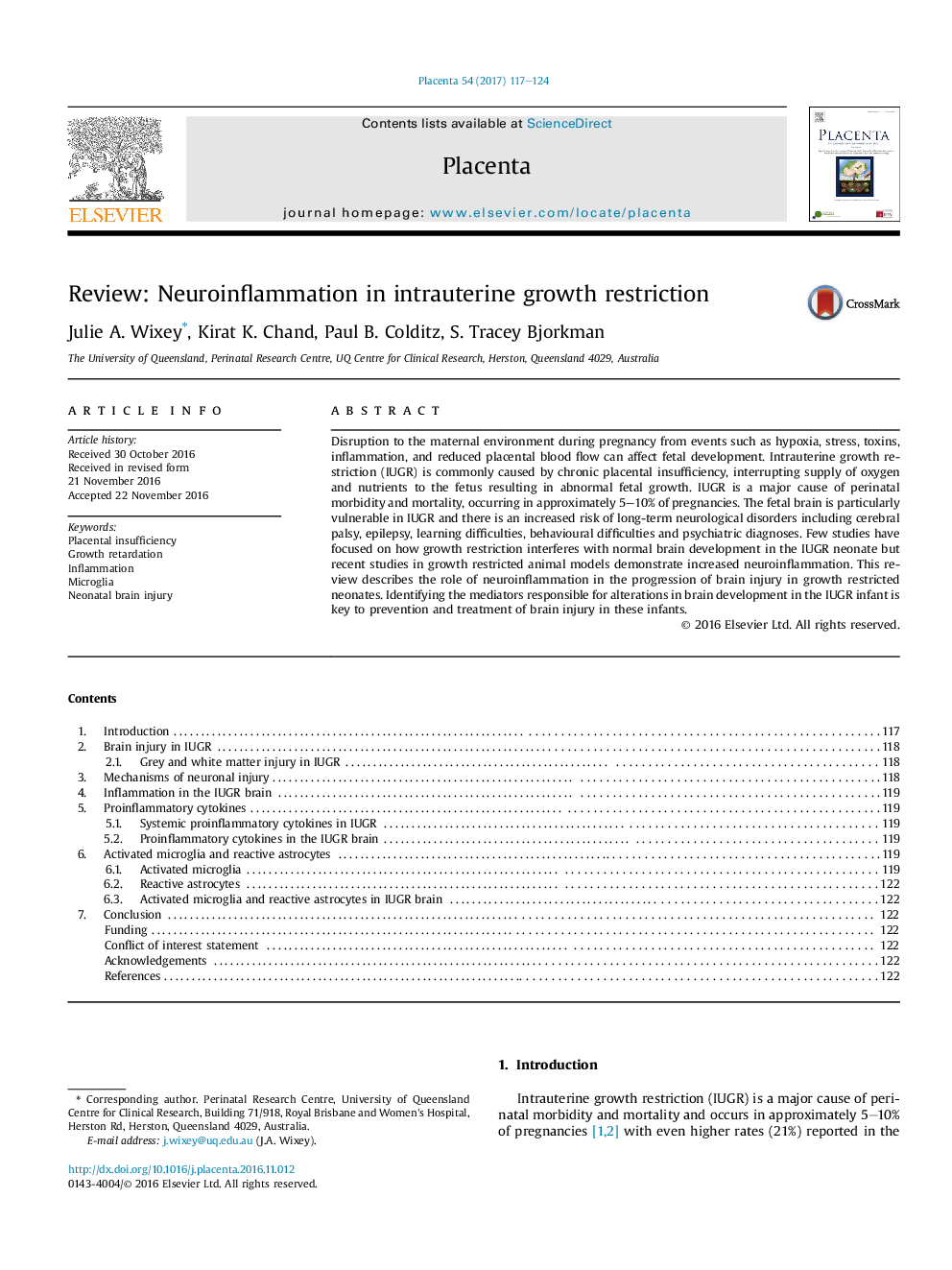| Article ID | Journal | Published Year | Pages | File Type |
|---|---|---|---|---|
| 5585976 | Placenta | 2017 | 8 Pages |
Disruption to the maternal environment during pregnancy from events such as hypoxia, stress, toxins, inflammation, and reduced placental blood flow can affect fetal development. Intrauterine growth restriction (IUGR) is commonly caused by chronic placental insufficiency, interrupting supply of oxygen and nutrients to the fetus resulting in abnormal fetal growth. IUGR is a major cause of perinatal morbidity and mortality, occurring in approximately 5-10% of pregnancies. The fetal brain is particularly vulnerable in IUGR and there is an increased risk of long-term neurological disorders including cerebral palsy, epilepsy, learning difficulties, behavioural difficulties and psychiatric diagnoses. Few studies have focused on how growth restriction interferes with normal brain development in the IUGR neonate but recent studies in growth restricted animal models demonstrate increased neuroinflammation. This review describes the role of neuroinflammation in the progression of brain injury in growth restricted neonates. Identifying the mediators responsible for alterations in brain development in the IUGR infant is key to prevention and treatment of brain injury in these infants.
